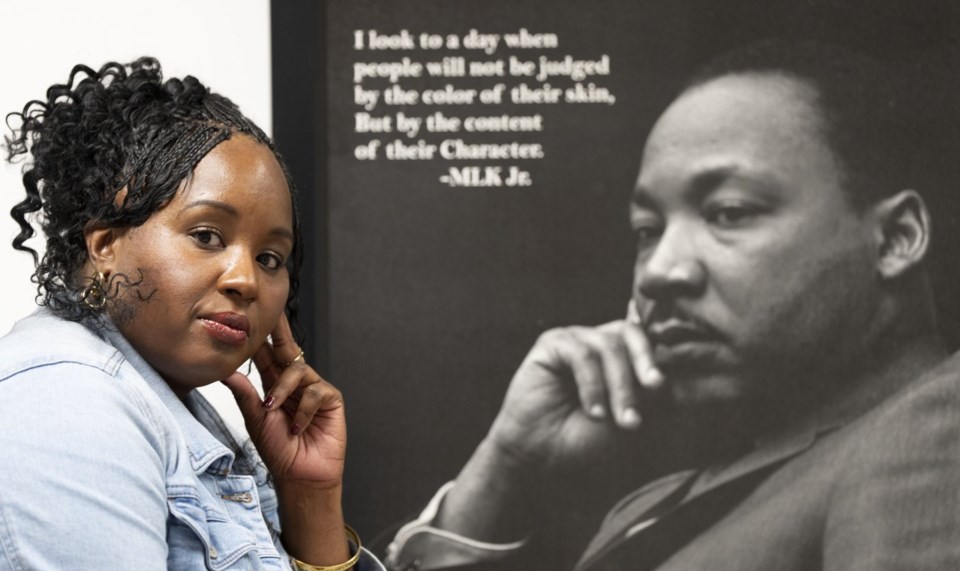Top Stories
Quebec Rejects Federal Funds to Combat Systemic Racism in Courts

BREAKING: The Quebec government has just announced its decision to reject $6.64 million in federal funding aimed at addressing systemic racism in the criminal justice system. This critical funding, offered by the federal government in 2021, was intended to promote fairness in court proceedings across Canada.
The funds were designated for the implementation of Impact of Race and Culture Assessments (IRCAs), which analyze the influence of systemic racism on individuals facing charges. Quebec’s Justice Department spokesperson, Marie-Hélène Mercier, stated, “Quebec doesn’t subscribe to the approach on which the funding program is based, namely systemic racism.” This position isolates Quebec from other provinces that are actively embracing reforms to combat racial disparities in their legal systems.
The implications of Quebec’s rejection are profound. According to federal statistics, Black individuals are 24 percent more likely to serve time following arrest compared to their white counterparts. The funding aimed to address such disparities by ensuring that cultural and racial contexts are considered during sentencing.
David Nyarko, a board member of the Viola Desmond Justice Institute, criticized the government’s stance, emphasizing that it puts criminal defendants at a disadvantage. “We believe that systemic racism is alive and exists in Quebec,” Nyarko stated. His institute has been working pro-bono to advocate for the routine use of IRCAs in court proceedings but faces significant challenges due to the lack of legal aid funding from the province.
The rejection comes at a time when the need for equitable legal representation is more pressing than ever. In July 2025, a significant ruling highlighted the importance of these assessments. A Quebec judge reduced the sentence of Frank Paris, a man who faced charges linked to systemic racism and poverty, from 36 months to 24 months after reviewing an IRCA. This decision exemplifies the potential impact of such assessments on achieving fairer outcomes for marginalized communities.
Calls for Quebec to reconsider its stance are growing louder. Nicole Mitchell, co-author of Paris’s assessment and a PhD student at McGill University, argues that rejecting federal funds is blocking access to vital justice-informed and culturally grounded legal aid services for Black and racialized individuals.
The federal government remains open to collaboration, with spokesperson Kwame Bonsu stating, “Canada remains ready to work with Quebec to support the implementation of IRCAs.” However, as of now, Quebec stands firm in its decision, leaving many advocates concerned about the future of racial equity in the province’s justice system.
With other provinces actively seeking to implement similar funding agreements, Quebec’s isolation could hinder critical advancements in addressing systemic racism. The urgency for change is evident, and the path forward remains uncertain as advocates and officials grapple with the implications of this decision.
As the situation develops, the Viola Desmond Justice Institute continues its mission with resolve. “Regardless of their position, we’re going to continue to do the work that we do,” Nyarko affirmed. The fight against systemic racism in Quebec’s courts is far from over, and advocates are determined to push for necessary reforms—even without provincial support.
Stay updated as this story unfolds and learn how it impacts justice in Canada.
-

 Politics4 weeks ago
Politics4 weeks agoSecwepemc First Nation Seeks Aboriginal Title Over Kamloops Area
-

 World5 months ago
World5 months agoScientists Unearth Ancient Antarctic Ice to Unlock Climate Secrets
-

 Entertainment5 months ago
Entertainment5 months agoTrump and McCormick to Announce $70 Billion Energy Investments
-

 Science5 months ago
Science5 months agoFour Astronauts Return to Earth After International Space Station Mission
-

 Lifestyle5 months ago
Lifestyle5 months agoTransLink Launches Food Truck Program to Boost Revenue in Vancouver
-

 Technology3 months ago
Technology3 months agoApple Notes Enhances Functionality with Markdown Support in macOS 26
-

 Lifestyle3 months ago
Lifestyle3 months agoManitoba’s Burger Champion Shines Again Amid Dining Innovations
-

 Top Stories2 months ago
Top Stories2 months agoUrgent Update: Fatal Crash on Highway 99 Claims Life of Pitt Meadows Man
-

 Politics4 months ago
Politics4 months agoUkrainian Tennis Star Elina Svitolina Faces Death Threats Online
-

 Sports5 months ago
Sports5 months agoSearch Underway for Missing Hunter Amid Hokkaido Bear Emergency
-

 Politics5 months ago
Politics5 months agoCarney Engages First Nations Leaders at Development Law Summit
-

 Technology5 months ago
Technology5 months agoFrosthaven Launches Early Access on July 31, 2025



















